
Bloodgang,
Welcome to this week’s issue of Bloodgood’s notes. The idea of this newsletter is to give you an overview of the previous week’s fundamentals and what happened on charts as well as to remind you of this week’s articles, secret TA tips, and trading calls. Basically, it’s about giving you all the key info in one place.
Table of contents
- Fundamental overview
- Bitcoin and Ethereum chart
- Blood’s content recap
- Concluding notes
As this community grows, I have a duty to give back to all of you that helped me and supported me to become what I am. This free newsletter is just another way to share my experiences and prepare you for the journey that’s ahead of you.
Love,
Blood
Fed expected to hike rates for 25bps in March, Binance drama and HTF charts.
Fundamental overview
As far as macro is concerned, not much has been going on the past week, but one thing to mention is the stronger than expected jobs report on Friday, which got some speculating that we could see another 25 bps hike in May rather than a pause. On the other hand, there’s still plenty of USD liquidity entering the system through repo operations and other mechanisms, so it’s not like the money faucet is drying up any time soon.
In the wild world of crypto, the Binance saga took an unexpected turn last Monday, soon after I sent out the previous newsletter (looks like there’s a pattern here—it might make sense to keep an eye on the news after this issue hits your inbox). Cobie tweeted out a hash—think of it as a cryptic message, but I’ll explain a bit more in the Concluding notes because the particular hash function used is absolutely essential in crypto—and someone unexpectedly managed to decipher it. The message was “Interpol Red Notice for CZ”, and it set off an insane level of panic. Even though it was just a random tweet based on nothing more than rumors, it led to a sizable dip in BTC and eight figure liquidations. Not enough to break this notorious range we’re in, but enough to take a decent chunk out of the net worth of any overleveraged bulls.
Bitcoin
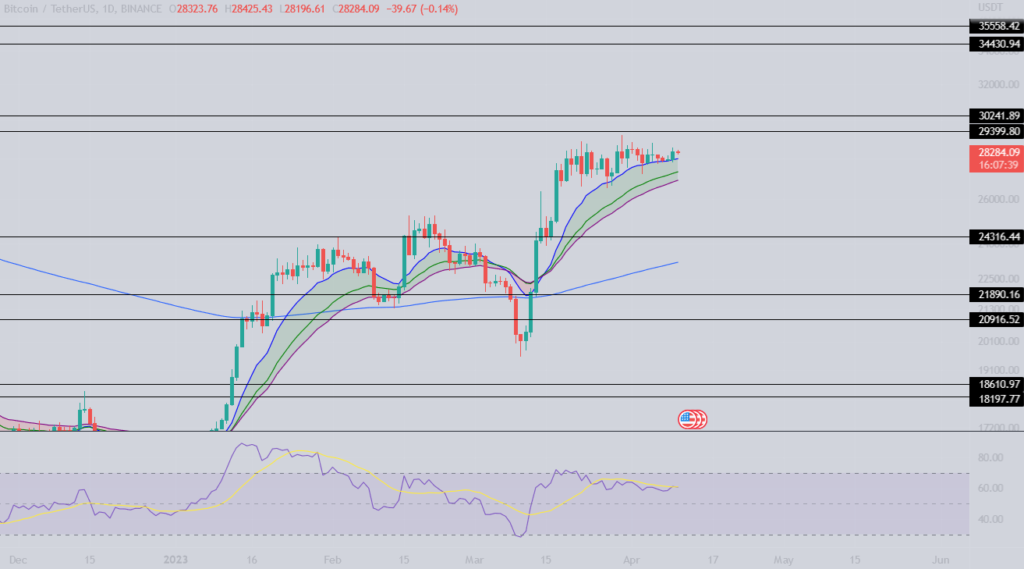
Bitcoin Daily
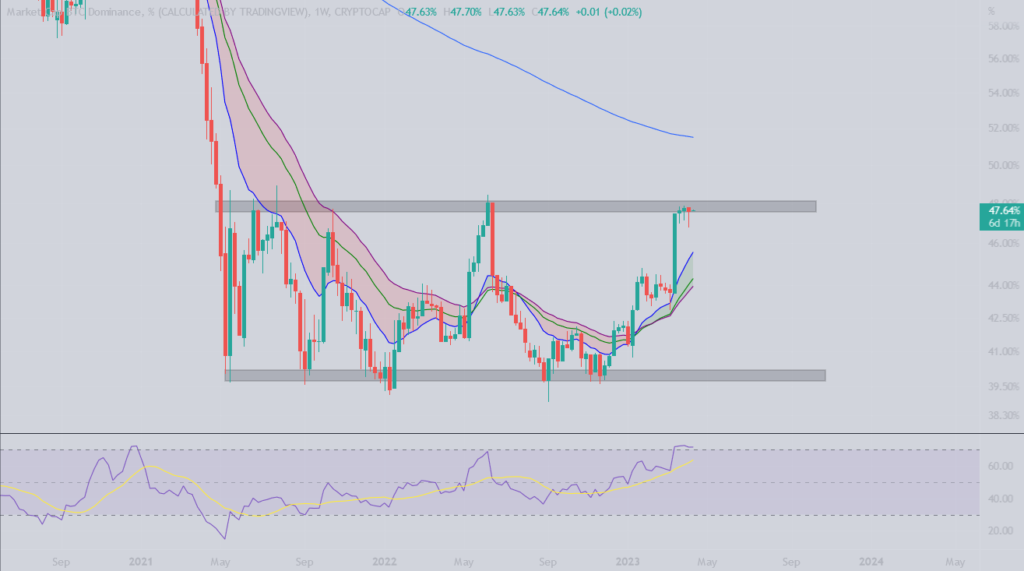
Bitcoin Dominance
Bitcoin has been trading in its $27,000–$28,500 range since mid March.
Not much has been going on the monthly chart so I am not updating it since the previous newsletter. Check out Bloodgood Notes 2 to see the analysis of both the weekly and monthly timeframe. The weekly is currently showing indecision between bulls and bears for the last few weeks.
While the weekly chart oozes indecision, the daily timeframe remains bullish and steadfast in its uptrend. As long as Bitcoin stays above those short-term EMAs, there’s no need to panic about a breakdown. On the other hand, the RSI got rejected at the 80 level not too long ago, and it’s been in a downtrend ever since. A reset might be in the cards.
Meanwhile, Bitcoin Dominance keeps trying to break through resistance, but to no avail. Fair warning: there’s a huge gap above this resistance, so if dominance finally manages to bust through, alts could get rekt in BTC value.
Not much more to say to be honest. Keep an eye on the short term trend EMAs, as long as we are above them, there is a good chance of pushing towards the $30k level, if they’re lost then $24,300 is in play.
SPX, Gold and DXY
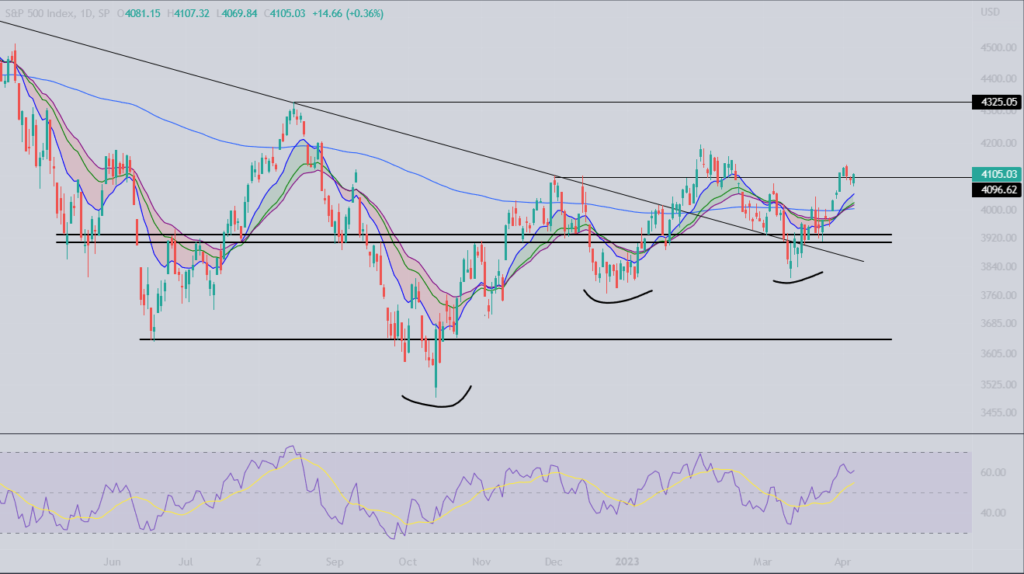
S&P 500
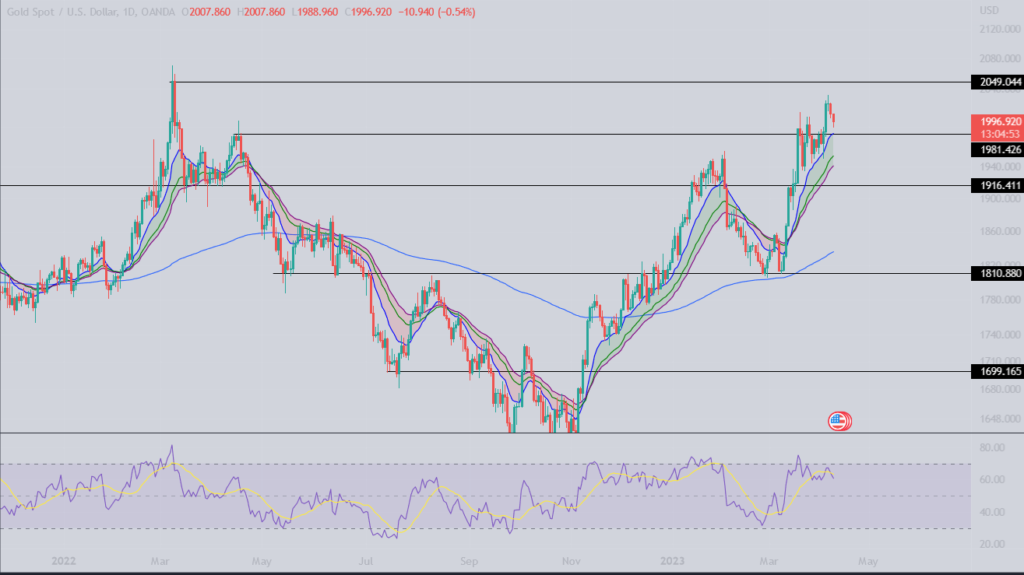
Gold
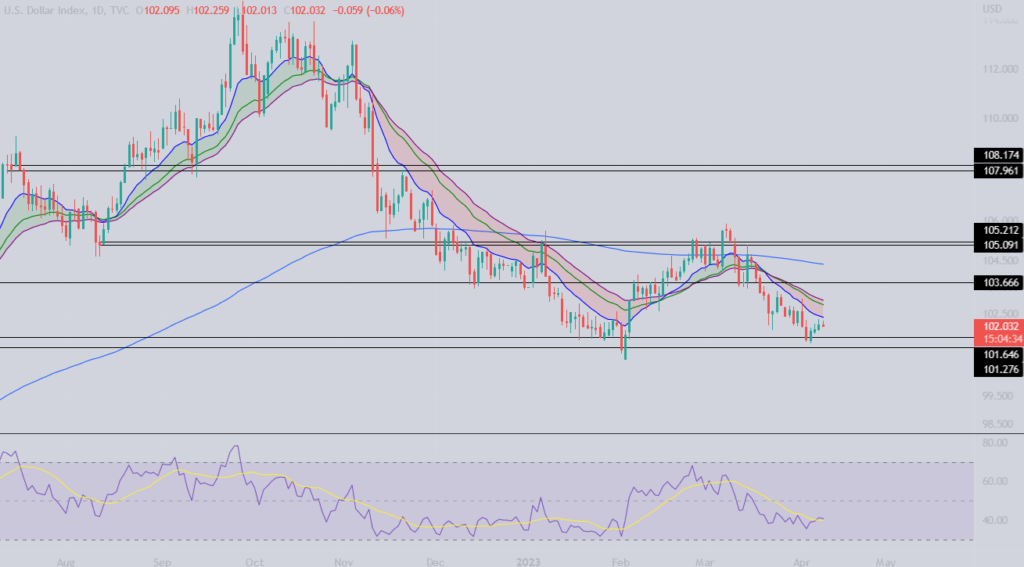
U.S. Dollar Index
The S&P 500 is currently trading at a pivotal point, lingering near its December 2022 highs. While it’s unable to break above for now, the presence of higher lows keeps the outlook bullish. Key levels to watch are 4,200 and 4,325 to the upside. In the event of a rejection, it’s crucial to defend the 3,920 level and establish a higher low. Failing that, we will look towards the previous lows.
Gold has successfully pushed above the 1,981 level and appears to be retesting it now. Should the retest hold, we can anticipate a move towards all-time highs, as it just had its highest weekly close since August 2020.
As for the Dollar Index, it remains entrenched in a downtrend, barely clinging to the 101.6 level—the final threshold before a new low is established. It’s hardly surprising that the DXY is faltering, given recent reports of China, Russia, and Saudi Arabia striking deals to bypass the use of the dollar.
Ethereum
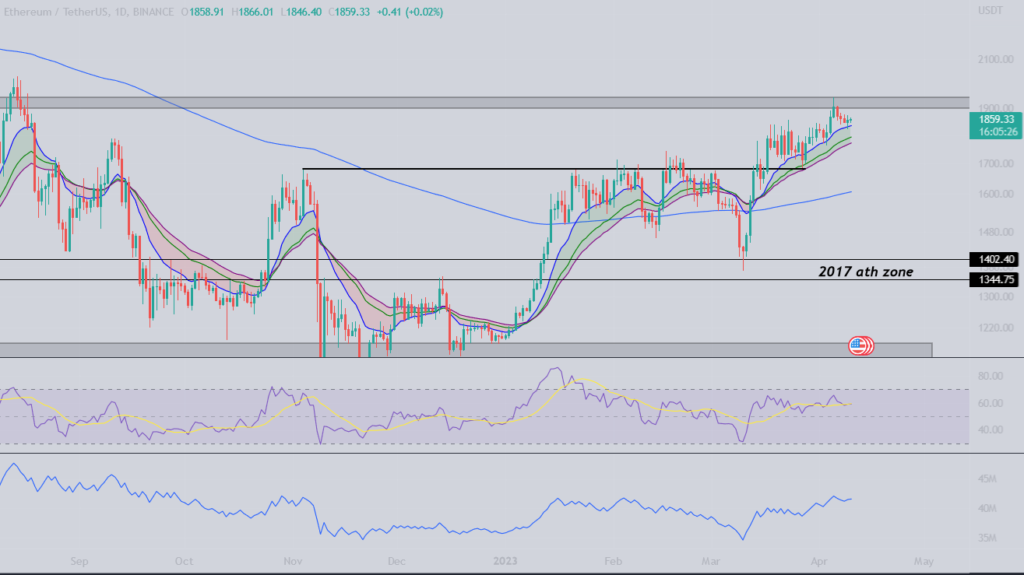
Ethereum/USD
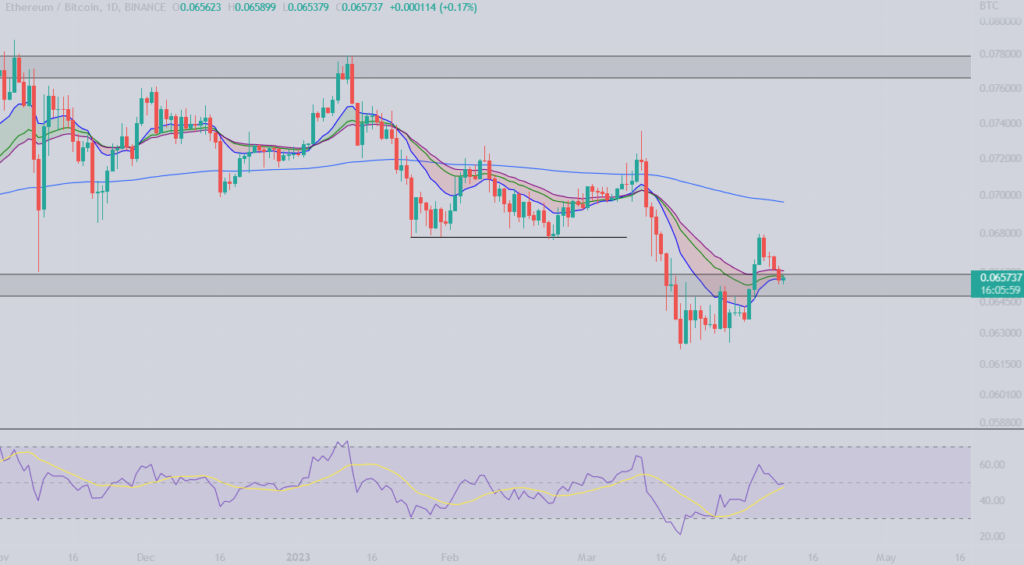
Ethereum/BTC
Ethereum is testing the summer range high, just two days before the unlock.
Can’t help but have Ethereum Merge vibes with this situation. I expected ETH to push higher before the unlock, but it seems that bulls have been unable to push it above the range for now. There’s an interesting week ahead for Ethereum in any case, but I will stay away from trading this event as no one really knows what will happen.
Taking a look at the indicators, we can see that the price is trading above the short-term EMAs, and both the RSI and OBV are in an uptrend, which makes sense considering the upcoming event.
As for the Ethereum/Bitcoin pair, it has climbed back above the 0.065 BTC level and is currently confirming it as support. This just goes to show how important this level is. Additionally, the break above the short-term EMAs is the first sign of a potential trend reversal.
Blood’s content recap
New upcoming tool
“My AI trading bot is in the final works.
Started building it before the AI hype, but I want to perfect it.
Currently, it brings 30% weekly returns, but I want 50%
Will be shared publicly once ready
I will make a closed group testing, Like and Retweet, and I’ll pick 20 of you“
Comment on the AI
“ People fear AI thinking jobs will be lost cause of it.
Same fearful mindset was seen pre industrial revolution where “machine will take over our jobs”.
Economy grew like crazy and more jobs were created.
Stop crying, adapt and seize the opportunity..“
Concluding notes
As mentioned above, Cobie’s infamous tweet was just a seemingly random bunch of letters and numbers, i. e. a SHA-256 hash. SHA-256, or Secure Hash Algorithm 256-bit, is a cryptographic hash function that’s at the heart of Bitcoin and many other cryptocurrencies, so anyone involved in crypto should know at least the basics about it. Simply put, it takes any input data, no matter the size, and spits out a unique 256-bit fixed-length output called a hash. The key thing here is that the function is one-way: while it’s easy to calculate the hash of a given input, there’s no way to find the input if you only have the hash, except by brute-forcing it (trying every possible input until you end up with a matching hash, which is very computationally intensive).
The reason Cobie used it, and also why many other people use it in tweets, is that it allows you to prove you knew about something at a given time without revealing what that is. Cobie heard a rumor and didn’t want to fan the flames of panic himself, so he opted to just post the hash. That way (assuming the hash isn’t broken, which in this case it was), if the rumor turns out to be true, he would be able to prove that he knew about it already at the time that he tweeted the hash. If it’s false, then he never has to reveal the input of the hash and everyone would just forget about it.
In this case, the unexpected twist came when someone managed to find the input; while brute-forcing a hash is one way to do it, it’s far more likely that someone took a much more focused approach by using inputs that were related to the situation with Binance. In fact, the message wasn’t exactly too hard to guess given what was going on, so it’s a bit of an oversight on Cobie’s part. If you’re ever in a similar situation and want to create a hash, but one that won’t be broken as easily, just add some more data to the input. Hashes don’t correlate with inputs, so even a single-character difference in input will produce a completely different hash. If Cobie had added 10-20 random words to the hash input, it would have been almost impossible to crack, while he would still be able to reveal the input later on if he wanted to.




